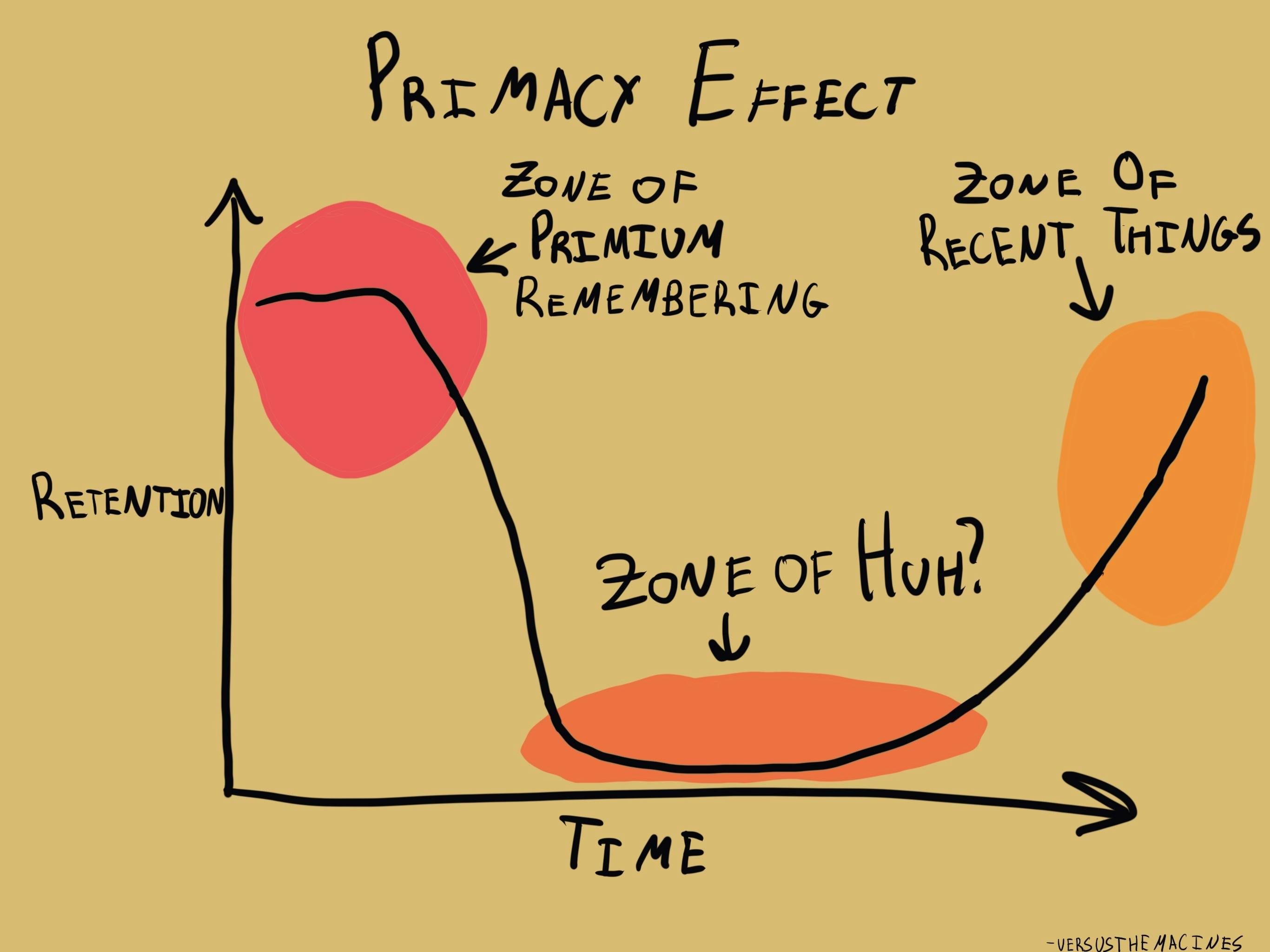Why do we only remember the first things on our grocery list?
Primacy Effect
, explained.What is the Primacy Effect?
The primacy effect is the tendency to remember the first piece of information we encounter better than information presented later on.

Where this bias occurs
Imagine your partner or flatmate asks you to pick up a few things on your quick trip to the supermarket. It’s only six items, so you’re confident you’ll remember and don’t bother writing them down. Once you arrive at the store, you can only remember the first two and the last one, but nothing in between.
This is a classic example of the serial position effect, which describes how we tend to remember the first and last items in a list better than those in the middle. The first component of this cognitive bias is the primacy effect, where the initial items stick in your memory. The second part, the recency effect, accounts for why the last item is fresh in your short-term memory. But the middle items, without reinforcement, often fade quickly.1
The primacy effect plays a crucial role in human memory, recall of items, learning, and even first impressions, shaping not just what we remember, but how we make sense of the information we're given.
To leverage this cognitive bias, companies often use television, radio, the internet, and print advertising to present us with the first impression of their product or service, even before it is available. Additionally, this technique is often used in news stories about upcoming phone releases or movie previews, with brands presenting the most important or impactful information first.
















